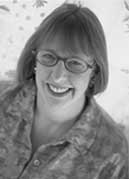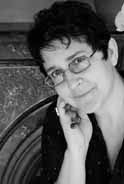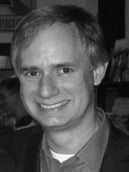Please click one of the collapsible tabs to read more about the 2010 Ocean State Summer Writing Conference.
These tabs may take a while to load!
To return to the current conference, click on “Ocean State Summer Writing Conference” above.
-
Welcome to the annual Ocean State Summer Writing Conference. If writing is your passion, we invite you to join us at the University of Rhode Island’s beautiful Kingston Campus for three days devoted to you and your craft.
This year’s conference, which will run June 24-26, features National Book Award winner Julia Glass, author of three novels, including The Three Junes; Whiting Writer’s Award winnerWayne Koestenbaum, author of five non-fiction books, a novel, and five books of poetry; Guggenheim winner Jacqueline Osherow, author of five books of poetry, and many other distinguished writers and poets.




Ocean State Summer Writing Conference Highlights
- Master Classes in non-fiction, playwriting/screenwriting, and poetry
- Workshops in fiction, non-fiction, poetry,and publishing/editing
- Craft Seminars
- Panel Discussions
- One-on-one Consultation and Manuscript Evaluation
- Networking Opportunities

Photo credits: Julia Glass by Dennis Cowley | Wayne Koestenbaum by Heike Steinweg
-
Julia Glass is the author of the novels Three Junes, winner of a National Book Award; The Whole World Over; and The Widower’s Tale (forthcoming in September 2010). Her third book, I See You Everywhere, a collection of linked stories, won the 2009 SUNY John Gardner Fiction Award. Other awards for her fiction include the Sense of Place Award, the Tobias Wolff Award ,and the Pirate’s Alley Medal for Best Novella. Julia’s feature articles have appeared in numerous national magazines, and her personal essays are widely anthologized. She has held fellowships from the National Endowment for the Arts, the New York Foundation for the Arts, and the Radcliffe Institute for Advanced Study. She lives with her two sons and their father on the North Shore of Massachusetts.
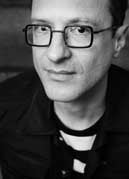
Wayne Koestenbaum has published five books of poetry: Best-Selling Jewish Porn Films, Model Homes, The Milk of Inquiry, Rhapsodies of a Repeat Offender, and Ode to Anna Moffo and Other Poems. He has also published a novel, Moira Orfei in Aigues-Mortes, and five books of nonfiction: Andy Warhol, Cleavage, Jackie Under My Skin, The Queen’s Throat(a National Book Critics Circle Award finalist), and Double Talk. His newest book, Hotel Theory, is a hybrid of fiction and nonfiction. He is currently writing a book about Harpo Marx and a book about humiliation. Winner of a Whiting Writer’s Award, Koestenbaum is a Distinguished Professor of English at the CUNY Graduate Center, and also a Visiting Professor in the painting department of the Yale School of Art.
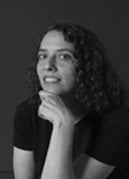
Jacqueline Osherow is the author of five books of poems, Looking for Angels in New York (1988) and Conversations with Survivors (1993) from University of Georgia Press, With a Moon in Transit (1996) and Dead Men’s Praise (1999) from Grove Press and The Hoopoe’s Crown (2005) from BOA Editions. as well as Whitethorn, forthcoming from LSU Press in 2011. She has been awarded grants from the National Endowment for the Arts, the John Simon Guggenheim Foundation, the Ingram Merrill Foundation and the Witter Bynner Prize from the American Academy and Institute of Arts and Letters as well as a number of prizes from the Poetry Society of America. Her work has appeared in many journals and anthologies, including The Wadsworth Anthology of Poetry (Thomson Wadsworth, 2006), Twentieth Century American Poetry (McGraw Hill, 2004), The Making of a Poem: A Norton Anthology of Poetic Forms (Norton, 2001), Inventions of Farewell: A Book of Elegies (Norton, 2001), The Penguin Book of the Sonnet (Penguin, 2001), The Norton Anthology of Jewish-American Literature (Norton, 2000) and Best American Poetry (1995 and 1998). She is Distinguished Professor of English and Creative Writing at the University of Utah.
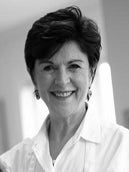 Nancy Verde Barr is the author of three award-winning cookbooks, We Called It Macaroni, In Julia’s Kitchen with Master Chefs, with Julia Child, and Make It Italian; a novel,Last Bite: A Culinary Romance, and a memoir of her eighteen years as Executive Chef to Julia Child, Backstage with Julia, My years with Julia Child. Her latest book, The Pink Ribbon Diet: A Revolutionary New Weight Loss Plan to Lower Your Breast Cancer Risk will be released in October. She has also published numerous articles in culinary magazines and has worked in television as a culinary producer for PBS, Good Morning America and The Television Food Network. Nancy, who holds a Bachelor’s Degree in English from the University of Rhode Island and a Culinary Diploma, from Madeleine Kamman, has taught cooking classes, led television production workshops and writing panels.
Nancy Verde Barr is the author of three award-winning cookbooks, We Called It Macaroni, In Julia’s Kitchen with Master Chefs, with Julia Child, and Make It Italian; a novel,Last Bite: A Culinary Romance, and a memoir of her eighteen years as Executive Chef to Julia Child, Backstage with Julia, My years with Julia Child. Her latest book, The Pink Ribbon Diet: A Revolutionary New Weight Loss Plan to Lower Your Breast Cancer Risk will be released in October. She has also published numerous articles in culinary magazines and has worked in television as a culinary producer for PBS, Good Morning America and The Television Food Network. Nancy, who holds a Bachelor’s Degree in English from the University of Rhode Island and a Culinary Diploma, from Madeleine Kamman, has taught cooking classes, led television production workshops and writing panels.
Steven Brown, current Ph.D. candidate at the University of Rhode Island, received his MFA from McNeese State University (2008) where he studied under poet, Morri Creech. In an introduction to his most recent work with photographer, Jerry Uelsmann, John Wood describes Brown’s writing a ” planetary.” His poems “infuse the spiritual into the ordinary things of this world . . . moths, birds, and wings; clouds, stones, and water; bones, nests, and eggs; and upon hands and light. These are the great nouns of [his] art, the things from which [he] shapes worlds and renders lightening to the fields.”
Mary Cappello is the author of three previous books of literary nonfiction, Called Back, Night Bloom, and Awkward: A Detour, a Los Angeles Times Bestseller. Her essays and experimental prose appear in such places as The Georgia Review, Salmagundi, Southwest Review, American Letters and Commentary, and have been awarded The Bechtel Prize for Educating the Imagination from Teachers and Writers Collaborative, the Lange-Taylor Prize from Duke University’s Center for Documentary Studies, and Notable Essay of the Year Citations in The Best American Essays. Her new book,Swallow, will be published by New Press. A former Fulbright Lecturer at the Gorky Literary Institute in Moscow, Russia, Cappello is Professor of English and Creative Writing at the University of Rhode Island.
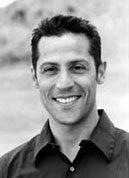
Peter Covino is Assistant Professor of English and Creative Writing at the University of Rhode Island. He won the 2007 PEN America/ Osterweil Award for emerging poets and is the author of Cut Off the Ears of Winter (New Issues Press), and the chapbook Straight Boyfriend, winner of the Frank O’Hara Poetry Prize. Recent poems have appeared or are forthcoming in the American Poetry Review,Colorado Review, LIT, The Yale Review, and Quarterly West, among others. He’s currently co-editing Essays on Italian American Literature and Culture for Bordighera Press, CUNY (2010), and is a founding editor of Barrow Street; and the poetry editor for VIA: Voices in Italian Americana.
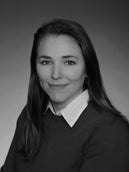
Erin L. Cox is a Senior Associate at Rob Weisbach Creative Management, where she develops and represents writers as well as creating comprehensive publicity and advertising campaigns for outside clients. Erin started her career in publicity at Scribner, where she represented writers such as Frank McCourt, Meg Wolitzer, Colm Toibin, and Al Roker. Prior to joining Rob Weisbach Creative Management, Erin Cox was the Book Publishing Director at The New Yorker.
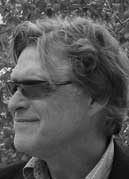
Wayne Cresser is an associate professor of English at a small New England college, co-creator and editor of shaking like a mountain (www.shakinglikeamountain.com), an online journal which publishes literature about contemporary music, a blogger at PopKrazy, and an award winning writer of short fiction, whose story “Anything About an Airport,” will appear this summer in Secrets: the second annual MOTIF anthology, published by MotesBooks, Louisville, KY.
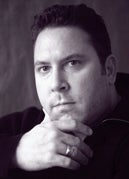
Franco D’Alessandro A native New Yorker educated in Italy and America, he has had fourteen international, Off-Broadway and regional productions of his plays. His 2002 Off-Broadway hit “Roman Nights” has been produced all over the world and will be made into a feature film. “The Shattering” -has been work-shopped at The Cherry Lane Theatre with Olympia Dukakis; new plays include The Museum Hours and “White Elephants Dancing The Flamenco”. D’Alessandro holds a Master’s Degree in English Education and teaches drama, theatrical text analysis, and writing in New York City schools, several universities. In 2009 Finishing Line Press published “Supplications: Immediate Poems of Loss and Love”, a chapbook of poetry.
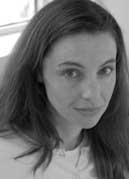
Darcie Dennigan is the author of Corinna A-Maying the Apocalypse. Her writing has appeared in 180 More: Extraordinary Poems for Every Day, Atlantic Monthly, Barrow Street, The Believer, Gulf Coast, POOL, and Tin House. The recipient of a Discovery/The Nation award and of fellowships from the Bread Loaf Writers Conference, Byrdcliffe Artists Guild, and the University of Michigan, she is currently an associate editor for H_NGM_N.
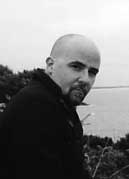
Tom DeTitta, playwright and director of World Communities Theater, has often been at the epicenter of significant social and human rights issues in various parts of the world, interviewing survivors of the Khmer Rouge in Cambodia (“Searching for Innocence”) and second wives in Ghana (“Darkness Lifting”); articulating the human changes that resulted from the fall of the Berlin Wall (“Stalinka”) and telling the Oregon Trail story from the point of view of the Cayuse Indian Nation (“Home Again”). His work has been featured in numerous national media outlets. He recently worked with President Jimmy Carter on a play about the 39th President.
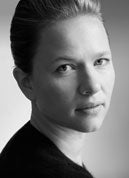
Amity Gaige is the author of two novels, O My Darling(2005) and The Folded World (2007). In 2007, The Folded World was named Foreword Book of the Year, best book of fiction in the Independent Publisher Book Awards, and one of the year’s Favorite Books by the Chicago Tribune. Amity is the winner of a Fulbright Fellowship, a McDowell Colony Fellowship, and in 2006, she was recognized as one of “5 Under 35” outstanding emerging writers by the National Book Foundation. She lived and taught in Rhode Island for many years before moving to Amherst, Massachusetts in 2006. She currently teaches creative writing and literature at Mt. Holyoke College.
David Groff is an editor, writer, and poet living in New York City. A graduate of the Iowa Writers Workshop, he spent twelve years at Crown Publishers, where he published authors including Colin Harrison, Dave Barry, and Patrice Gaines, and for the last sixteen years has been an independent editor and consultant working with authors published by Bantam, Basic, Hyperion, Miramax, Morrow, Wiley and other houses. He also edits and consults for literary agents and private clients, and has published several books of his own, including a collection of poetry, Theory of Devolution.
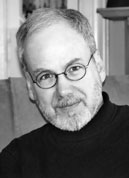
Richard Hoffman’s memoir Half the House won the Boston Athenaeum Readers’ Prize in 1996. He is the author of two collections of poems, Without Paradise (2002), and Gold Star Road (2007), winner of the Barrow Street Press Poetry Prize, and the Sheila Motton Book Award from The New England Poetry Club. His latest book, Interference and Other Storieswas published in 2009. He has twice been a Massachusetts Cultural Council fellow in fiction, and recently received a Brother Thomas Fellowship from The Boston Foundation. He is currently Writer-in-Residence at Emerson College in Boston.
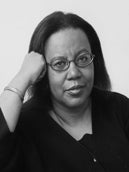
Patricia Spears Jones is an African American poet and playwright.. She is author of Femme du Monde and The Weather That Kills and editor of Think: Poems About Aretha Franklin’s Inauguration Hat/. Anthologized in Black Nature: Four Centuries of African American Nature Poetry; Bowery Women Poets; broken land: Poems of Brooklyn, and Best American Poetry, 2000. Mabou Mines commissioned ‘Mother’ and Song for New York: What Women Do When Men Sit Knitting.. Recipient of NEA, NYFA, the Foundation for Contemporary Arts and the Goethe Institute grants. Performances at California College of Arts; Poets House; Pine Manor College, and Cave Canem.
Michael C. Keith is the author of over 20 books, principally on media subjects. In addition, his memoir, The Next Better Place, was published to critical praise by Algonquin Books in 2003, and in 2009 he published a young adult novel, Life is Falling Sideways (Parlance Publishing). His other writings include numerous articles in academic journals and several dozen short stories in on-line magazines and printed anthologies. Keith has taught communication at a number of institutions, among them Marquette University, George Washington University, and Boston College, where he presently serves on the faculty. He is the recipient of several awards, including the International Radio Television Society’s Stanton Fellow Award, the Broadcast Education Association’s Distinguished Scholar Award, and the University of Rhode Island’s Achievement Award in the Humanities. www.michaelckeith.com
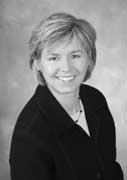
Marna Krajeski has written two books about military family life — Household Baggage: The Moving Life of a Soldier’s Wife and Household Baggage Handlers: 56 Stories From the Hearts and Lives of Military Wives. She grew up an Air Force brat, served on active duty as a helicopter pilot, and was an Army wife for 19 years. Krajeski earned her MA in English at Austin Peay State University while stationed at Fort Campbell, KY. A university writing instructor, her articles and essays have been published in SO Rhode Island, Military Spouse, Off Duty, Married to the Military, American Baby,The Military Times, and the Providence Journal. She also blogs at http://www.Householdbaggage.com.
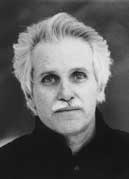 Peter LaSalle is the author of the novel Strange Sunlight and three short story collections: The Graves of Famous Writers, Hockey Sur Glace, and Tell Borges If You See Him: Tales of Contemporary Somnambulism. His work has appeared in many anthologies, such as Best American Short Stories, Best American Mystery Stories, Best American Fantasy, Sports Best Short Stories, Best of the West, and Prize Stories: The O. Henry Awards. He grew up in Rhode Island, graduated from Harvard, and currently teaches at the University of Texas at Austin, where he is the Susan Taylor McDaniel Regents Professor of Creative Writing.
Peter LaSalle is the author of the novel Strange Sunlight and three short story collections: The Graves of Famous Writers, Hockey Sur Glace, and Tell Borges If You See Him: Tales of Contemporary Somnambulism. His work has appeared in many anthologies, such as Best American Short Stories, Best American Mystery Stories, Best American Fantasy, Sports Best Short Stories, Best of the West, and Prize Stories: The O. Henry Awards. He grew up in Rhode Island, graduated from Harvard, and currently teaches at the University of Texas at Austin, where he is the Susan Taylor McDaniel Regents Professor of Creative Writing.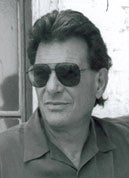
Robert Leuci is an adjunct professor in the URI English department. He has written seven crime novels, translated into four languages and has most recently published a memoir with Harper Collins, All The Centurions. He has also written a television play for the Arts And Entertainment network show 100 Centre Street and has done a radio play for German radio, Brooklyn Roofs. In 1999 he received the South County Center For the Arts literary prize. He lives in Saunderstown.
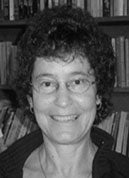
Jody Lisberger, PhD, MFA (fiction), Vermont College. Jody Lisberger’s story collection, Remember Love, was published by Fleur-de-Lis Press. Her stories have appeared in Fugue,Michigan Quarterly Review, Thema, Confrontation, and The Louisville Review. Her story “Crucible” was nominated for a Pushcart Award. She won third place in the 2003 American Literary Review Fiction Contest and was a finalist in the 2004 Quarterly West Fiction Contest. She has taught fiction, creative nonfiction, literature, and feminist theory at Brown, Harvard, Tufts, Holy Cross, Boston University, and University of Rhode Island where she currently is the interim director of Women’s Studies. She has also worked as a journalist, editor, and grant writer.
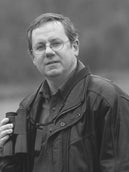
Todd McLeish has been writing about wildlife and environmental issues for more than 20 years by volunteering to help biologists with their wildlife research and writing about those experiences. In more than 100 magazine and newspaper articles, he has examined the natural history and threats facing numerous species, from dragonflies and beetles to lynx, turtles and piping plovers. His books, Golden Wings and Hairy Toes and Basking With Humpbacks, focus on the most endangered wildlife in New England. Research for his next book, which will be about narwhals, takes him on field trips this summer to Greenland and the high Arctic of Canada.
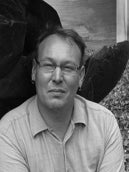
Kevin McLellan is the author of the chapbook Round Trip(Seven Kitchens, 2010), a collaborative series with numerous women poets. He has recent or forthcoming poems in journals including: Arch Literary Journal, Barrow Street,Colorado Review, Drunken Boat, Hunger Mountain, Interim,Southern Humanities Review, Versal and several others. Currently, Kevin teaches creative writing at the University of Rhode Island and he lives in Cambridge, Massachusetts.
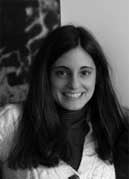
Michele Meek wrote and directed the short film Red Sneakers, which premiered at the Woods Hole Film Festival in 2008 and received second place in the children’s category at the Rhode Island International Film Festival. She earned her M.F.A. at Emerson College and will begin a Ph.D. in English program at University of Rhode Island this fall. She has guest-lectured at Boston College and Emerson College and has taught film and writing courses at Emerson College, Boston Film Video Foundation and Massachusetts College of Art. She has also served on numerous juries for film awards, festivals and screenwriting competitions.
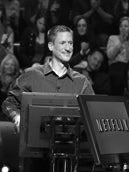
Christopher Mensel studied English and Political Science at Williams College before graduating to Los Angeles and the film industry in 1987. He spent a number of years working as an assistant director, production coordinator, and producer on feature films, music videos, commercials, and industrials before deciding to put fingers to keyboard. He is currently a professional, published and produced screenwriter.
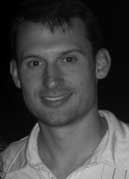
Jacob Nelson is a Master’s Degree candidate in the Graduate English program at the University of Rhode Island. He earned his B.A. in Secondary Education from Saint Louis University. He currently teaches English at Stonington High School and writes poetry in his free time.
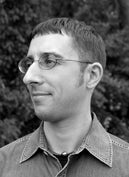
Derek Pollard is co-author with Derek Henderson of the book Inconsequentia (BlazeVOX 2010). His poems, creative non-fiction, and reviews appear in American Book Review,Colorado Review, Court Green, Diagram III, Pleiades, andSix-Word Memoirs on Love & Heartbreak, among other anthologies and journals. He is currently on faculty at Monmouth Academy in Howell, New Jersey, and at the Downtown Writer’s Center in Syracuse, New York.
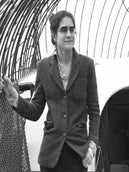
Kate Schapira is the author of TOWN (Factory School, Heretical Texts, 2010) and several chapbooks with Flying Guillotine Press, Portable Press at Yo-Yo Labs, Rope-A-Dope Press, Cy Gist Press and horse less press. She is the founder and curator of the Publicly Complex Reading Series in Providence, RI.
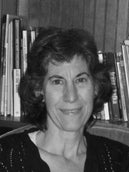
Barbara Siegel Carlson’s poems and translations have appeared in NOR, Cutthroat, Mid-American Review, Hayden’s Ferry Review, Poetry Miscellany and elsewhere. A collection of English versions, co-translated with Ana Jelnikar, of Srecko Kosovel’s poetry, Look Back, Look Ahead, has recently been released by Ugly Duckling Presse. A chapbook of her poems, Between This Quivering, was published by Coreopsis Press. Carlson, a 1979 graduate of University of Rhode Island, has an MFA from Vermont College of Fine Arts. She lives in Carver, MA and teaches at Thayer Academy Braintree, MA.
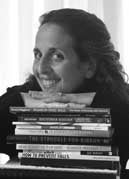
Lisa Tener, national book writing coach, helps aspiring authors write a nonfiction/how-to book and get published. Her clients have been featured on the CBS Early Show, The Oprah Winfrey Show, CNN, Good Morning America and much more. Lisa has been interviewed on ABC World News with Peter Jennings, PBS-TV and in Glamour, Body and Soul and many other national media. Lisa serves on the faculty of the Harvard Medical School CME publishing course. She is a published author and blogs at www.LisaTener.com/blog.
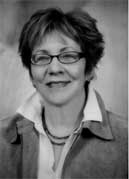
Nicki Toler is a working writer whose essays, reviews, and other non-fiction pieces have appeared in a variety of publications. Her monthly “Just a Thought” column ran in East Greenwich Magazine from 2002-2008, and her fiction and non-fiction work were featured in the 2007 Rhode Island Writers’ Circle Anthology. She is a Web editor at the University of Rhode Island, and is working on a novel.
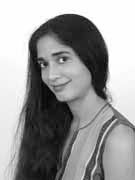
Padma Venkatraman is the author of over 100 articles for adults and children. Her debut novel, Climbing the Stairs(Penguin, 2008) was released to starred reviews in Publishers Weekly, Booklist, and VOYA ; and has received other honors (Booklist Editor’s Choice Best Books of the Year, BooksenseNotable, New York Public Library Book, ALA/YALSA Best Books of the year, Booklinks Best New Books, NCSS/CBC Notable, CCBC choice, Capitol Choice, ALA/Amelia Bloomer list, CLN Top 25, Publishers Weekly Flying Start, RARI shortlist). Venkatraman’s most recent award is the Julia Ward Howe Boston Authors Club 2009 Award for Climbing the Stairs.
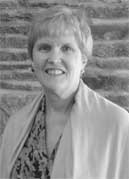
Jan Wenzel is a late bloomer. She returned to college in her 40s to earn an English degree in 1987, wrote for a weekly newspaper, and then freelanced for a couple of years, which sounds exciting if not profitable. She switched to public relations in 1991 when she joined the University of Rhode Island’s Department of Communications and Marketing. Since then, she has written hundreds of press releases and features for the alumni magazine. She also has experience in video scripts and advertising copy. Although the petals on her flower are beginning to droop, she expects that a novel or a nonfiction book, poems, or essays may still be germinating.
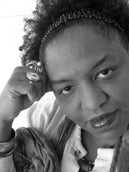
Crystal Wilkinson is the author of two collections of stories,Blackberries, Blackberries, winner of the 2002 Chaffin Award for Appalachian Literature and Water Street, a finalist for both the Orange Prize for Fiction and the Hurston/Wright Legacy Award. Both books are published by Toby Press. She lives in Lexington, Kentucky and teaches writing and literature in the BFA in Creative Writing Program at Morehead State University and the MFA in Creative Writing Program at Spalding University. She and her partner, Ron Davis editMythium, a literary journal celebrating writers of color and the cultural voice.
Photo credits: Julia Glass by Dennis Cowley | Wayne Koestenbaum by Heike Steinweg | Peter LaSalle by Alex. S. MacLean
-
Please return for updates. Direct inquiries to ossummerwriting@gmail.com
Download a printable version of the schedule here.
Thursday, June 24th
12:00-1:00 Registration: Part I of Conference Begins
1:00-3:30 Workshops Session I
- Beginning Fiction: Jody Lisberger
- Intermediate Fiction: Crystal Wilkinson
- Advanced Fiction: Peter LaSalle
- Poetry: Patricia Spears Jones
- Nonfiction: Richard Hoffman
- Publishing: David Groff
1:00-3:30 URI Student Classes Meet on Campus
- ENG 205A Poetry Melissa Hotchkiss
- ENG 205B Fiction Kathryn Kulpa
- ENG 205D Screen Writing Christopher Mensel
- ENG 305A Advanced Poetry Talvikki Ansel
- ENG 305B Advanced Fiction Robert Leuci
- ENG 305C Advanced Creative Nonfiction Rachel May
3:30-4:30 One-on-One Consultations & Networking
4:30-6:30 Reception & Reading
Friday, June 25th
9:00-11:30 Workshops Session II, URI Classes Session II
11:00-11:45 Registration: Part II of the Conference Begins
11:30-12:00 Lunch
12:00-1:15 Invocation & Keynote Address: Julia Glass
1:30-2:45 Craft Sessions & Panel Discussions
- Panel: Writing Your Passion with Nancy Barr, Michael Keith, Todd McLeish, Moderator: Jan Wenzel
- Poetry Panel: Holding On and Letting Go, Issues of Craft and Publication with Barbara Siegel Carlson, Darcie Dennigan, Derek Pollard, Moderator: Jacob Nelson
- Craft Session: Put Your Thing in Action: Establishing Dramatic Weight in Fiction with Crystal Wilkinson
3:00-4:15 Craft Sessions & Panel Discussions
- Fiction & Young Adult Literature Craft Session: What is Young Adult: Writing Fiction that Crosses Age Boundaries with Padma Venkatraman
- Prose Panel: Fiction & Nonfiction Mingle
- Poetry Craft Session: Patricia Spears Jones
4:30-5:30 Keynote Address & Reading: Wayne Koestenbaum
6:00-9:15 Drinks, Dinner, Readings, & Reception
Saturday, June 26th
9:00-10:15 Craft Sessions & Panel Discussions
- Promoting Your Work With New & Traditional Media Panel
- Dramatic Dialogue: Monologue/Playwriting/Screenwriting with Franco D’Alessandro, Bob Leuci, Christopher Mensel, Moderator: Michele Meek
- Craft & Collaboration Session: Two Heads Are Better Than One: The Poem, the Poet, and the Other with Kevin McLellan, Derek Pollard
10:30-11:45 Master Classes & Craft Session
- Master Class in Playwriting and Dialogue with Tom DeTitta — Looking Past Your Navel: Writing About the Course of Human Events (limited enrollment)
- Master Class in Nonfiction with Wayne Koestenbaum — Experiment and Embarrassment (limited enrollment)
- Master Class in Poetry with Jaqueline Osherow — The Poetic Turn (limited enrollment)
- Collection vs. Book Prose Panel: What Am I Writing?
12:00-12:30 Lunch
12:30-1:30 Keynote Address & Reading: Jacqueline Osherow
1:45-3:00 Editors & Agents: David Groff & Erin Cox
3:15-4:15 Faculty Readings
4:30-5:45 Conference Attendee Readings -
Here is a closer look at some of our conference offerings. Check back regularly as new events are added, or follow us on Facebook, where you will find more information about the programs, presenters, writing events in the Northeast, and resources for writers.
Two Day Intensive Workshops
Beginning Fiction with Jody Lisberger
This workshop will spend time looking at and doing some writing exercises relevant to the essential craft of writing fiction. We will examine several techniques for developing character, explore the catalysts of conflict and dramatic tension, and investigate how good fiction writers use the seen and the unseen, details, setting, and body language. We will also consider effective and strategic beginnings, endings, and use of back-story. The workshop will generate material for participants to take home and develop into full-blown stories. There will be a short writing assignment and reading given in workshop on Thursday that will be due for Friday’s workshop.
Intermediate Fiction with Crystal Wilkinson
Good writing focuses on both the small things — what is seen, heard, tasted and felt (both physically and emotionally), the perfect word, the essential detail, the perfect verb and the large things — scene, beats of action, plot, point of view, etc. Our workshop will focus on how we combine and hone all of these ingredients — large and small — and (re)make them into engaging fiction. We will discuss process, narrative strategy, construction; and write a skeleton of a new piece of fiction. The goal of the workshop is that participants will leave with both the bones of a new story/chapter as well as new tips and techniques to take the stories/chapters they have already written to the next level. Students are encouraged to bring a small scene to the workshop for a quick revision workshop (though this is not a requirement).
Advanced Fiction with Peter LaSalle
In this advanced workshop there will be discussion of the need to have a story that surely cries to be told. Following that will be some ideas on the essential elements in a traditionally realistic fiction — setting, character, plot — as well as encouragement to maybe go beyond the traditional and embark on fiction involving more daring and even experimental approaches. There will be reading of several short stories assigned ahead of time, so we will have a shared body of good fiction for reference, and also a written assignment to be turned in on the second day of the workshop.
Basic and Bold — The Remix — Poetry with Patricia Spears Jones
Every writer finds a niche, a gesture, the thing that works in what they do. At some point it may become a style or convention. Sometimes it becomes a crutch. One way to break the mode is to be radical — that is, return to the roots. What brought you to poetry in the first place? What did you want to express? Where to do you want your poetry to go? The workshop is for writers who want to make poems that are as ambitious, thoughtful and innovative. Who want to see how poetry basics from line lengths to cadence and rhythm help the poet make poems as bold as they can possibly be. Basic and bold are the workshops focus. There will be in class writing, reading of poets representing a range of styles and approaches such as Ai, Charles Bernstein, Frank Bidart, Brenda Hillman, Bob Kaufman, Maureen Owen, Audre Lorde, Maria Negroni, and Lorenzo Thomas. Also a revision project called CAN THIS POEM BE SAVED? in which you bring a poem that simply has not come to closure; seems to be stuck; or needs to be looked at by fresh eyes in the hope of finding what could make it work or why it simply does not.
The Ninth Letter of the Alphabet — Nonfiction with Richard Hoffman
First-person non-fiction, whether the short personal essay or a book-length memoir, engages and interrogates subjective experience: I, it says, insistently, I. I think. I feel. I remember. I wish. I regret. I hope. I wonder. Paradoxically, a good personal essay or memoir is seldom about the self, except by extension; rather it is about how one has experienced and understands the world. With all humility, it says, “This is how I see it,” not “This is how it is.” This seminar will explore several approaches to the personal essay and memoir, beginning with the many possibilities of first-person narration.
Mastering the Publishing Business: An Insider’s Guide for Writers with David Groff
Led by a New York editor and writer with 28 years of experience in corporate publishing and in independent consulting for publishers, agents, and private clients, this workshop offers writers an insider’s roadmap to navigating the daunting publishing landscape. In this workshop –designed for both fiction and nonfiction writers — you will learn to develop your manuscript or book proposal so that it will appeal to agents and editors, foster your authorial “platform” strategize your best path to publication, connect with publishing’s gatekeepers, master the editorial and marketing intricacies of the business, and build an enduring career.
Craft Sessions & Panel Discussions
Publishing in a Time of Change: An Agent and Editor Discuss Opportunities for Writers
A conversation between New York literary agent Erin Cox and editor David Groff as they examine the new era of publishing and outline how writers can take advantage of these changes. The rise of digital, self, and niche publishing has allowed many more options for how to publish a book than in a more traditional model. Through social media and blogs, writers can develop new ways to get the attention of publishers of all sizes. You will hear how these changes have impacted the agent-writer and editor-writer relationships and discover new ways to stand out in the crowd.Holding On and Letting Go, Issues of Craft and Publication with Barbara Siegel Carlson, Darcie Dennigan, Derek Pollard, Moderator: Jacob Nelson
If a poem rides on its own melting, how do we let it ride while still maintaining control of the language? In other words, how do we intuit each turn, so that the concerns become larger and the poem more vertical, while still “almost resisting the intelligence” as Stevens asserted all great poetry must do? On this panel, we will discuss how we attend to our own crafting of each poem, striving to use innovative and compelling language to take us beyond language. In addition, we will address some of the particular issues facing emerging writers as they move toward publication in a market that continues to shift in response to new media and new readerly attentions.
Put Your Thing in Action: Establishing Dramatic Weight in Fiction with Crystal Wilkinson
“A scene is a focused, vivid world where things happen.” Ulf Wolf
Something must HAPPEN in fiction. Attention to strong verbs can be a useful way for fiction writers to strengthen scenes. This seminar focuses on identifying and strengthening verbs and by extension examining the dramatic weight of scenes in a short story or novel. During this seminar we will look at examples from the works of A.J. Verdelle, Barbara Kingsolver, James Still, Tania James and others. Writing exercises will be an integral part of this seminar.Two Heads Are Better Than One: The Poem, the Poet, and the Other with Kevin McLellan and Derek Pollard
William Blake had his Holy Angels, William S. Burroughs and Brion Gysin had the Third Mind, Jack Spicer had his “spooks” and perhaps most widely regarded, Arthur Rimbaud had a self he could only call “other.” In each of these instances, the writer acknowledges the existence of a larger, collaborative voice that resides somewhere beyond the individual, a liminal presence that shapes and guides poetic composition, often in exciting and unexpected ways. This craft session will explore the phenomenon of collaborative writing through the reading of multiple-author texts, group discussion, and a few collaborative writing exercises aimed at creating a space in which this other, indeterminate voice can join and add to our own as we make new poems together.
What is Young Adult: Writing Fiction that Crosses Age Boundaries with Padma Venkatraman
Is the Catcher in the Rye a “young” adult novel? The goal of this workshop is to explore some fundamental aspects of the fiction craft that are essential to writing novels for any target audience. We will begin with a discussion of why some authors write for young as well as older adults, and why some novels are categorized as young adult novels. We will do some hands-on exercises that move us beyond age-boundaries and end with a short question and answer session on how to become conversant at writing fiction for any age group.
Lines and What To Do with Them with Patricia Spears Jones
I want students to review their use of the line. I want them to see how the line and line length are treated by a broad range of modern and contemporary poets to achieve different effects: long, short and in between. James Schuyler, Lynda Hull, Angela Jackson, Maureen Owen, Sylvia Plath, David Rivard, Jimmy Santiago Baca and/or Gwendolyn Brooks are poets whose use of the line lends itself to study and practice. Each of them consistently choose certain line lengths or change them to suit their poems’ purpose. Line lengths may be instilled by specific forms (sonnet, etc.) or blank verse or “projective” verse as Olsen demonstrated. As part of the visual as well as the sonic structure of a poem, lines deeply matter, so arbitrary or inappropriate ones can sabotage what could be a great poem
Master Classes
Tom DeTitta (focus on screenwriting, playwriting, nonfiction, and literary advocacy) — Looking Past Your Navel: Writing About the Course of Human Events
This class will focus on the research and writing techniques used to address issues, lives, and historic events. Though the focus of the workshop will be play writing, the research techniques are applicable to any area of creative expression including screen writing and non-fiction prose. The workshop will stand on its head the platitude “write what you know,” and emphasize the creation of partnerships between the writer and those who have lived the story being written about; a partnership whereby information is received in exchange for artistic perspective. Participants are encouraged to bring their own nonfiction projects in any genre so the class can discuss research strategies for their work.
Wayne Koestenbaum (focus on nonfiction) — Experiment and Embarrassment
First, we will figure out how a nonfiction writer might experiment with form, voice, structure, and style. What innovations and eccentricities can we propose? What liberties can we borrow from literatures of the past and the present? Second, we will discuss how embarrassment enters writing. When we compose nonfiction, we must sometimes embarrass ourselves–or others. How can we use embarrassment as our ally? What can it teach us about how to write? Students are welcome to bring in a short excerpt of their own prose or poetry–one page, ideally. This excerpt can relate to either topic, or both: experiment, embarrassment. (The two themes, naturally, overlap.) Finally, for pleasure’s sake, we might do a writing exercise together in class.
 Home
Home Browse
Browse Close
Close Events
Events Maps
Maps Email
Email Brightspace
Brightspace eCampus
eCampus



